 This story by Fredric Brown begins and ends with what some claim is the shortest horror story ever written: The last man on Earth sat alone in a room. There was a knock on the door… A scientist wakes to find himself in a cell. The previous night Alien invaders had collected 217 animal species, including him, for study. They then destroyed all other animal life on the planet. He devises a clever way to convince the aliens that living on Earth is not a good idea. After they have all gone, he hears the second knock on the door. More…
This story by Fredric Brown begins and ends with what some claim is the shortest horror story ever written: The last man on Earth sat alone in a room. There was a knock on the door… A scientist wakes to find himself in a cell. The previous night Alien invaders had collected 217 animal species, including him, for study. They then destroyed all other animal life on the planet. He devises a clever way to convince the aliens that living on Earth is not a good idea. After they have all gone, he hears the second knock on the door. More…
Category Archives: Short Stories
The Faith Cure Man
 In this story from Paul Dunbar, a faith healer provides the last hope for a desperate woman who has been told that medical science can do nothing more for her seriously ill daughter. Despite the narrator’s skepticism, the tragic ending neither proves nor disproves the validity of faith healing. Although the mother certainly has the “faith”, the poor child is too young and/or sick to understand or even care about what is happening around her. The major theme of the story is that distraught people are easy prey to those offering false hope. Other themes: love, desperation, hope, faith, death. More…
In this story from Paul Dunbar, a faith healer provides the last hope for a desperate woman who has been told that medical science can do nothing more for her seriously ill daughter. Despite the narrator’s skepticism, the tragic ending neither proves nor disproves the validity of faith healing. Although the mother certainly has the “faith”, the poor child is too young and/or sick to understand or even care about what is happening around her. The major theme of the story is that distraught people are easy prey to those offering false hope. Other themes: love, desperation, hope, faith, death. More…
The District Doctor
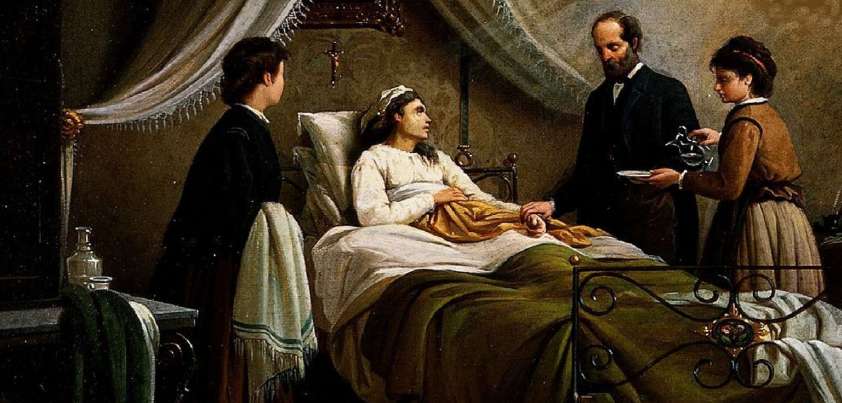 The major themes of this story by Ivan Turgenev are duty, lying, love, death and betrayal. A doctor becomes infatuated with a beautiful 20-year-old patient. As the woman’s condition worsens, he lies to her family about her chances of recovery. On sensing her coming death, the woman tells the doctor she loves him. He replies that he also loves her, accepts her ring, and promises to ask for her mother’s blessing. When the woman confesses their love to her mother, the doctor denies everything and blames her fever. Broken-hearted, she for asks his forgiveness and re-affirms her love before dying. More…
The major themes of this story by Ivan Turgenev are duty, lying, love, death and betrayal. A doctor becomes infatuated with a beautiful 20-year-old patient. As the woman’s condition worsens, he lies to her family about her chances of recovery. On sensing her coming death, the woman tells the doctor she loves him. He replies that he also loves her, accepts her ring, and promises to ask for her mother’s blessing. When the woman confesses their love to her mother, the doctor denies everything and blames her fever. Broken-hearted, she for asks his forgiveness and re-affirms her love before dying. More…
Chivalry
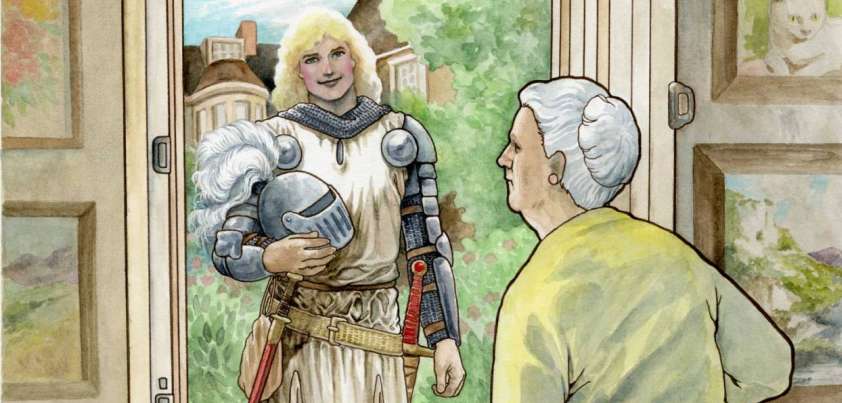 Mrs. Whitaker is a nice old lady with nice friends, who lives in a nice house in a nice neighborhood. She was also living a nice, peaceful life until one day her routine was interrupted by Sir Galahad, a handsome knight on a quest to find the Holy Grail. So begins this Neil Gaiman fantasy. Having recently bought the Grail at an op-shop, Mrs. Whitaker refuses Galahad’s offers of the Sword of Invincibility and Apple of (eternal) Life in exchange. Fortunately, the lad finds two other items that she thinks would look better on the mantelpiece! More…
Mrs. Whitaker is a nice old lady with nice friends, who lives in a nice house in a nice neighborhood. She was also living a nice, peaceful life until one day her routine was interrupted by Sir Galahad, a handsome knight on a quest to find the Holy Grail. So begins this Neil Gaiman fantasy. Having recently bought the Grail at an op-shop, Mrs. Whitaker refuses Galahad’s offers of the Sword of Invincibility and Apple of (eternal) Life in exchange. Fortunately, the lad finds two other items that she thinks would look better on the mantelpiece! More…
The Fence
 This story from Hamsad Rangkuti is an allegory of the biblical concept do unto others as you would have them do unto you. Many people are uncomfortable interacting with those who are different or less fortunate. Their solution is to establish social boundaries (fences) that block concerns about them from their lives. The story’s message is two-fold. First, no fence offers complete protection. Second, as exemplified by the vagrant gang, the mere existence of such a fence can bring about the result it is intended to prevent. Themes: (the mother) fear, lack of compassion, selfishness; (the father) kindness, sharing, faith. More…
This story from Hamsad Rangkuti is an allegory of the biblical concept do unto others as you would have them do unto you. Many people are uncomfortable interacting with those who are different or less fortunate. Their solution is to establish social boundaries (fences) that block concerns about them from their lives. The story’s message is two-fold. First, no fence offers complete protection. Second, as exemplified by the vagrant gang, the mere existence of such a fence can bring about the result it is intended to prevent. Themes: (the mother) fear, lack of compassion, selfishness; (the father) kindness, sharing, faith. More…
Button, Button
 Most readers will identify the major theme of Richard Matheson’s Button, Button as greed: the immoral pursuit of ‘easy money’ by pushing a button in a mysterious box that will result in the death of an innocent stranger. One character comments that this may be OK if the person that dies is some old Chinese peasant ten thousand miles away. This suggests that the story may also be an allegory. Pressing a button to launch a missile in war, and dealing in commercial quantities of drugs in peacetime, have one thing in common. The victims are all faceless strangers. More…
Most readers will identify the major theme of Richard Matheson’s Button, Button as greed: the immoral pursuit of ‘easy money’ by pushing a button in a mysterious box that will result in the death of an innocent stranger. One character comments that this may be OK if the person that dies is some old Chinese peasant ten thousand miles away. This suggests that the story may also be an allegory. Pressing a button to launch a missile in war, and dealing in commercial quantities of drugs in peacetime, have one thing in common. The victims are all faceless strangers. More…
The Star
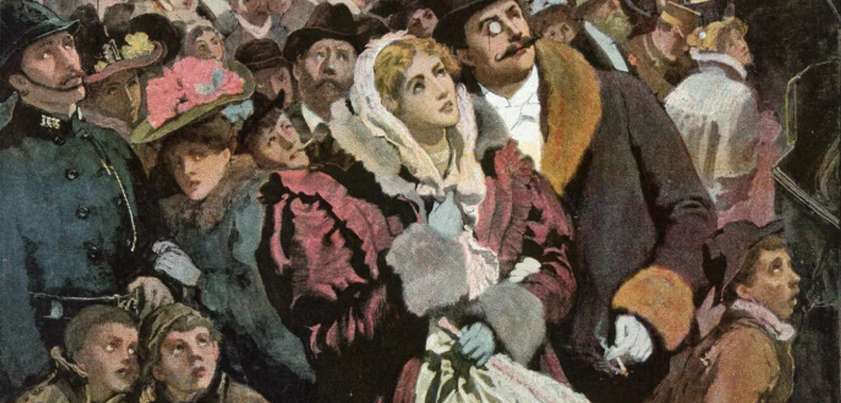 This apocalyptic story from H. G. Wells describes a near miss of Earth by a huge planetary fragment from outside the solar system. A somewhat disheartening theme is how insignificant the human race and its achievements are in the grand scheme of the universe. Part of the story’s appeal lies in questioning whether people would respond in a similar way if the same thing were to happen today. At first, people view the new “star” with excitement and anticipation. When a master mathematician makes dire predictions, many flee their cities in panic. But surprisingly, most do nothing until too late. More…
This apocalyptic story from H. G. Wells describes a near miss of Earth by a huge planetary fragment from outside the solar system. A somewhat disheartening theme is how insignificant the human race and its achievements are in the grand scheme of the universe. Part of the story’s appeal lies in questioning whether people would respond in a similar way if the same thing were to happen today. At first, people view the new “star” with excitement and anticipation. When a master mathematician makes dire predictions, many flee their cities in panic. But surprisingly, most do nothing until too late. More…
Average Waves in Unprotected Waters
 The ironic title of this story from Anne Tyler is said to be symbolic of protagonist Bet’s life. Like her fisherman father, Bet faces “average waves” (life challenges) in “unprotected waters” (alone). All her life, Bet has allowed herself to be battered by the waves, taking comfort from enduring. Unfortunately, the major challenge she has faced, raising a special needs son, is far from average. Her courageous decision to institutionalize Arnold suggests an attempt to take control of her life, but leaves her feeling empty and even more alone. Themes: memory, family, life-changing choices, motherly love, identity, courage, self-determination. More…
The ironic title of this story from Anne Tyler is said to be symbolic of protagonist Bet’s life. Like her fisherman father, Bet faces “average waves” (life challenges) in “unprotected waters” (alone). All her life, Bet has allowed herself to be battered by the waves, taking comfort from enduring. Unfortunately, the major challenge she has faced, raising a special needs son, is far from average. Her courageous decision to institutionalize Arnold suggests an attempt to take control of her life, but leaves her feeling empty and even more alone. Themes: memory, family, life-changing choices, motherly love, identity, courage, self-determination. More…
Foreign Shores
 A feature of this story from James Salter is its ambiguity, starting with the identity of the protagonist. Is it Gloria, the young divorcee who is too caught-up in partying to take proper care of her demanding six-year-old-son? Or is it Truus, her conscientious nineteen-year-old au pair? And although Truss is certainly the erotic focus of the story, does she really develop the morals of a housefly? Alternatively, could she an exploited victim, guilty only of misguided love, or is everything an unfortunate misunderstanding? Themes: sexual grooming / exploitation, appearance, motherhood, condescension, judgmentalism, jealousy, insecurity, emptiness. More…
A feature of this story from James Salter is its ambiguity, starting with the identity of the protagonist. Is it Gloria, the young divorcee who is too caught-up in partying to take proper care of her demanding six-year-old-son? Or is it Truus, her conscientious nineteen-year-old au pair? And although Truss is certainly the erotic focus of the story, does she really develop the morals of a housefly? Alternatively, could she an exploited victim, guilty only of misguided love, or is everything an unfortunate misunderstanding? Themes: sexual grooming / exploitation, appearance, motherhood, condescension, judgmentalism, jealousy, insecurity, emptiness. More…
The Golden Honeymoon
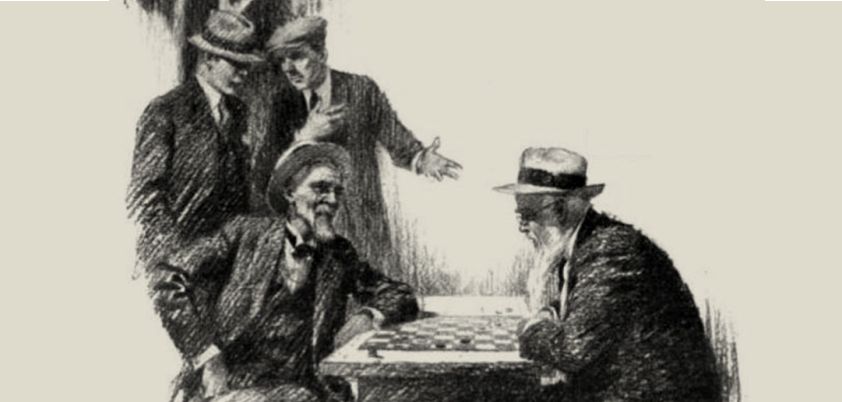 This story from Ring Lardner describes an elderly couple’s “second honeymoon” to celebrate their 50th (golden) wedding anniversary. Related in the folksy language of the 1920s, the story is a gentle satire of the shallow lives and petty concerns of the aged, and the way long-term marriages can evolve into lives of constant, albeit affectionate, bickering. Larder’s narrator (the husband) is a likeable old windbag: vain and insensitive; a good winner but poor loser; quick to find fault in others but never in himself; and always wanting things to go his way. Themes: aging, enduring love, jealousy, competitiveness, pettiness. More…
This story from Ring Lardner describes an elderly couple’s “second honeymoon” to celebrate their 50th (golden) wedding anniversary. Related in the folksy language of the 1920s, the story is a gentle satire of the shallow lives and petty concerns of the aged, and the way long-term marriages can evolve into lives of constant, albeit affectionate, bickering. Larder’s narrator (the husband) is a likeable old windbag: vain and insensitive; a good winner but poor loser; quick to find fault in others but never in himself; and always wanting things to go his way. Themes: aging, enduring love, jealousy, competitiveness, pettiness. More…
Rothschild’s Fiddle (Violin)
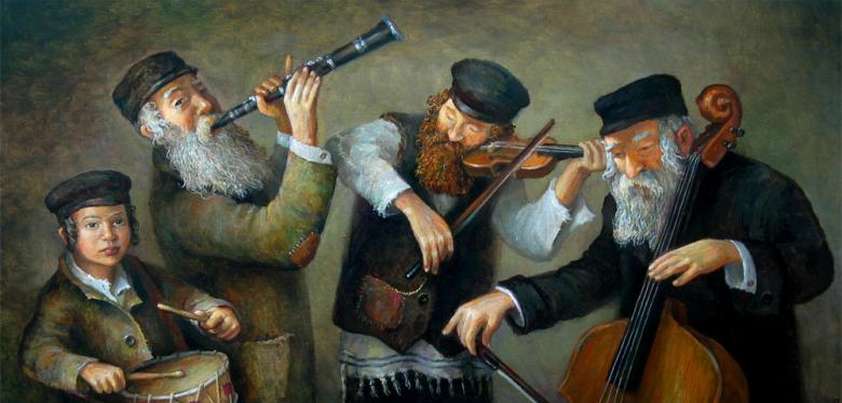 Many of Anton Chekhov’s stories deal with the struggles of the Russian working class. Some, like The Looking Glass and Misery, are quite depressing. This story, which deals with the themes of greed, prejudice and death, includes elements of dark humour and ends on a positive note. Yakov the coffin-builder measures his success by missed moneymaking opportunities. His only happiness is his violin, which he plays in a village band. When his wife dies, he regrets not having done more to enjoy life. He makes some amends on his deathbed by leaving his violin to a most unlikely person. More…
Many of Anton Chekhov’s stories deal with the struggles of the Russian working class. Some, like The Looking Glass and Misery, are quite depressing. This story, which deals with the themes of greed, prejudice and death, includes elements of dark humour and ends on a positive note. Yakov the coffin-builder measures his success by missed moneymaking opportunities. His only happiness is his violin, which he plays in a village band. When his wife dies, he regrets not having done more to enjoy life. He makes some amends on his deathbed by leaving his violin to a most unlikely person. More…
America and I
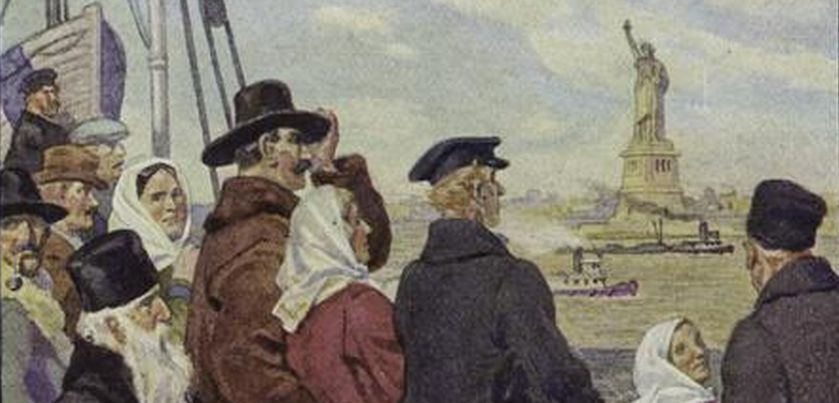 In this semi-autobiographical story, Anzia Yezierska begins by outlining her expectations of life in America as a young Russian immigrant in the late 1800s. Instead of a land of acceptance, equality and opportunity, she experiences alienation, exploitation and poverty. Although her situation improves as she develops English proficiency and vocational skills, her factory job is not satisfying. Fortunately, the study of American history leads to the revelation that her adopted country is a world still in the making, and helps her find a fulfilling purpose in life. Themes include innocence, poverty, immigration and cultural diversity, assimilation, opportunity, fulfilment.
In this semi-autobiographical story, Anzia Yezierska begins by outlining her expectations of life in America as a young Russian immigrant in the late 1800s. Instead of a land of acceptance, equality and opportunity, she experiences alienation, exploitation and poverty. Although her situation improves as she develops English proficiency and vocational skills, her factory job is not satisfying. Fortunately, the study of American history leads to the revelation that her adopted country is a world still in the making, and helps her find a fulfilling purpose in life. Themes include innocence, poverty, immigration and cultural diversity, assimilation, opportunity, fulfilment.
The world, and America’s need for unskilled migrants, has changed. Yezierska laments the fact that America was unable to tap the human and cultural potential of many other immigrants of her day. Sadly, the poor woman would turn in her grave if she knew how far off the mark the idealistic prediction expressed in her last paragraph has proved to be.
Fat
 Few authors could write as powerful a story about a non-PC topic (body shaming) as Raymond Carver has done here. Major themes are the way we judge people, loneliness and choice. A waitress’s co-workers dehumanize a customer by making fun of his size. They have no empathy for the person within. The experience greatly affects the waitress. She is expecting change. Is it leaving her insensitive partner? Could she, as some readers suggest, be pregnant and worried about getting fat herself? Or has she been inspired to face something about herself that she has been too afraid to address before? More…
Few authors could write as powerful a story about a non-PC topic (body shaming) as Raymond Carver has done here. Major themes are the way we judge people, loneliness and choice. A waitress’s co-workers dehumanize a customer by making fun of his size. They have no empathy for the person within. The experience greatly affects the waitress. She is expecting change. Is it leaving her insensitive partner? Could she, as some readers suggest, be pregnant and worried about getting fat herself? Or has she been inspired to face something about herself that she has been too afraid to address before? More…
The Adulterous Woman
 The adultery in this story from Albert Camus is not of the sexual kind. For the married protagonist, the vast expanse of the Algerian desert puts into perspective something she already knew but had refused to face. Although she has a caring and possibly still loving husband, married life has become mundane and, through lack of communication, lonely. With both existentialist and feminist undertones, her epiphany on the rampart provides a brief escape from misery and the realization that life could offer so much more. Themes: lack of fulfillment, loneliness, natural splendor, freedom, finding meaning and purpose in life. More…
The adultery in this story from Albert Camus is not of the sexual kind. For the married protagonist, the vast expanse of the Algerian desert puts into perspective something she already knew but had refused to face. Although she has a caring and possibly still loving husband, married life has become mundane and, through lack of communication, lonely. With both existentialist and feminist undertones, her epiphany on the rampart provides a brief escape from misery and the realization that life could offer so much more. Themes: lack of fulfillment, loneliness, natural splendor, freedom, finding meaning and purpose in life. More…
Quiet Town
 The recently released 6th Assessment Report by the UN Climate Change Panel presents a pessimistic assessment of the world’s progress in controlling global warming. That makes this an appropriate time to feature science fiction writer Jason Gurley’s Quiet Town, a grim picture of what may be the future of low-lying townships along world coastlines. Bev, her son Benji, and annoying neighbor Ezze are among the few remaining residents of a small town in which the rising ocean has just breached the sea wall. Experts had originally predicted that this would not happen for fifty years: it had taken five! More…
The recently released 6th Assessment Report by the UN Climate Change Panel presents a pessimistic assessment of the world’s progress in controlling global warming. That makes this an appropriate time to feature science fiction writer Jason Gurley’s Quiet Town, a grim picture of what may be the future of low-lying townships along world coastlines. Bev, her son Benji, and annoying neighbor Ezze are among the few remaining residents of a small town in which the rising ocean has just breached the sea wall. Experts had originally predicted that this would not happen for fifty years: it had taken five! More…
At War’s End: An Elegy
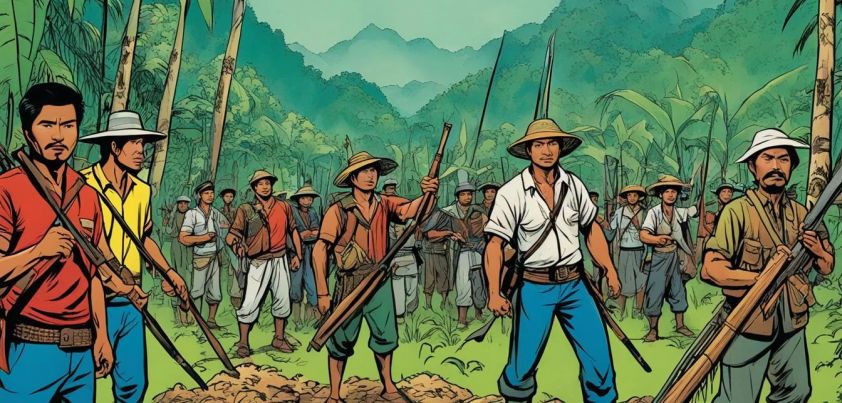 This story by Rony V. Diaz takes place during the Philippine Hukbalahap Rebellion at the end of World War 2. The “Huks”, originally a peasant resistance who fought the Japanese, embraced communist principles and turned their attention to overturning the country’s feudal farming system. The heir to a large landholding mysteriously commits suicide. It is unclear whether he acted because of a promise made to break up his family land, or uncertainty and fear about doing so. The answer may lie in a cryptic poem confiscated by police. Major themes include tradition, feudalism, wealth vs. poverty, social change, suicide. More…
This story by Rony V. Diaz takes place during the Philippine Hukbalahap Rebellion at the end of World War 2. The “Huks”, originally a peasant resistance who fought the Japanese, embraced communist principles and turned their attention to overturning the country’s feudal farming system. The heir to a large landholding mysteriously commits suicide. It is unclear whether he acted because of a promise made to break up his family land, or uncertainty and fear about doing so. The answer may lie in a cryptic poem confiscated by police. Major themes include tradition, feudalism, wealth vs. poverty, social change, suicide. More…
Paste
 The main theme of this story from Henry James is that things aren’t always as they appear. The stepson of a deceased vicar’s wife offers her gaudy costume jewellery to his young cousin. Later, the cousin learns that one piece, a pearl necklace, may be genuine. This is one of those rare stories where a protagonist who chooses to do the right thing is the only loser. Mystery surrounds how the dead woman came by such a necklace, and its fate after she returns it. Other themes: temptation, morality, vanity, greed, betrayal. More…
The main theme of this story from Henry James is that things aren’t always as they appear. The stepson of a deceased vicar’s wife offers her gaudy costume jewellery to his young cousin. Later, the cousin learns that one piece, a pearl necklace, may be genuine. This is one of those rare stories where a protagonist who chooses to do the right thing is the only loser. Mystery surrounds how the dead woman came by such a necklace, and its fate after she returns it. Other themes: temptation, morality, vanity, greed, betrayal. More…
Up in Michigan / My Old Man
 Today we have two short stories from Ernest Hemingway’s first book, Three Stories and Ten Poems, published in Paris in 1923. Although they don’t exhibit the tight, straightforward writing style for which Hemingway later became famous, they are indicative of the writing genius to come. The first, Up in Michigan, issues a grim warning to women about date rape. The subject matter was so contentious that it wasn’t considered publishable in the United States until 1938. The second story, My Old Man, is a coming of age story dealing with a boy’s relationship with his jockey father. More…
Today we have two short stories from Ernest Hemingway’s first book, Three Stories and Ten Poems, published in Paris in 1923. Although they don’t exhibit the tight, straightforward writing style for which Hemingway later became famous, they are indicative of the writing genius to come. The first, Up in Michigan, issues a grim warning to women about date rape. The subject matter was so contentious that it wasn’t considered publishable in the United States until 1938. The second story, My Old Man, is a coming of age story dealing with a boy’s relationship with his jockey father. More…
Titanic Survivors Found in Bermuda Triangle
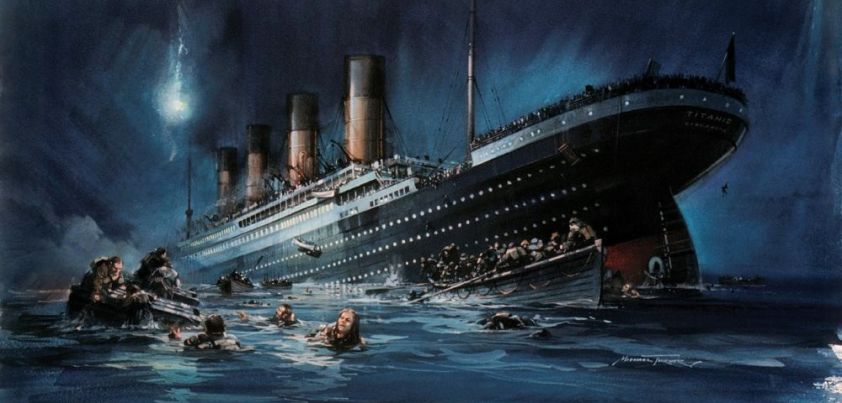 Robert Butler’s Titanic survivor is an early 1900s women’s rights campaigner. After “waking up” in a lifeboat off the Miami coast in the 1990s, she realizes that there is no place for her in the modern world. Women have been emancipated, and her family and friends are all dead. A gender-confused misandrist, the only man she has ever had strong feelings for (other than her father) went down with the Titanic. Having lacked the courage to express her feelings at the time, she decides to find him again. Themes: change, father-daughter relationships, finding purpose and meaning in life, sexuality, love. More…
Robert Butler’s Titanic survivor is an early 1900s women’s rights campaigner. After “waking up” in a lifeboat off the Miami coast in the 1990s, she realizes that there is no place for her in the modern world. Women have been emancipated, and her family and friends are all dead. A gender-confused misandrist, the only man she has ever had strong feelings for (other than her father) went down with the Titanic. Having lacked the courage to express her feelings at the time, she decides to find him again. Themes: change, father-daughter relationships, finding purpose and meaning in life, sexuality, love. More…
A Shinagawa Monkey / Confessions of a Shinagawa Monkey
 Last year (2020) Haruki Murakami released Confessions of a Shinagawa Monkey, a sequel to his 2006 story, A Shinagawa Monkey. Both deal with a talking monkey who steals items showing the names of women to whom he is attracted. By concentrating on these, he absorbs aspects of the women’s identity. Although this satisfies the Monkey’s desires towards the women, it causes them to forget their names. The monkey is a symbol for all the lonely, often overlooked people in society whose circumstances make it difficult to find love. Other themes: envy; suicide; confronting and sharing concerns; reaching out for help. More…
Last year (2020) Haruki Murakami released Confessions of a Shinagawa Monkey, a sequel to his 2006 story, A Shinagawa Monkey. Both deal with a talking monkey who steals items showing the names of women to whom he is attracted. By concentrating on these, he absorbs aspects of the women’s identity. Although this satisfies the Monkey’s desires towards the women, it causes them to forget their names. The monkey is a symbol for all the lonely, often overlooked people in society whose circumstances make it difficult to find love. Other themes: envy; suicide; confronting and sharing concerns; reaching out for help. More…
A Manual for Cleaning Women
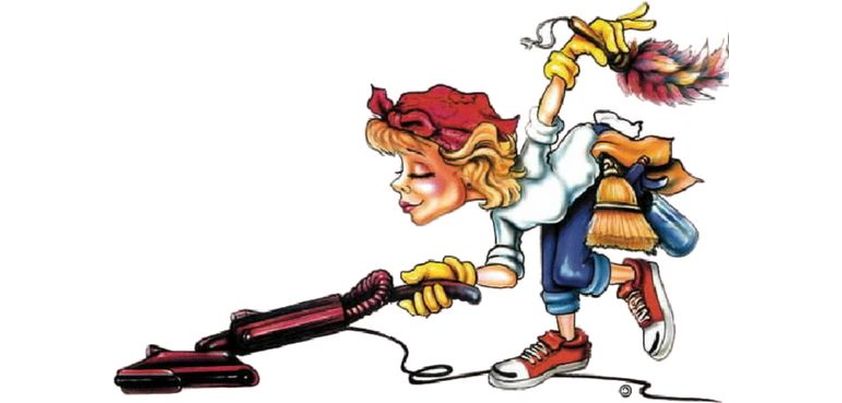 Despite the title, this entertaining first-person narrative by Lucia Berlin focuses more on how to cope with being a cleaning woman than how to do the job. Major themes are the humanity of domestic workers, and the crucial role they can play in client households. The protagonist shares the frustrations of her work, the mind games and other devices she uses to deal with them, the pain of losing her partner, and her habit of stealing sleeping pills from clients for a rainy day. Other themes: camaraderie, life of the city poor, class, loss and loneliness. More…
Despite the title, this entertaining first-person narrative by Lucia Berlin focuses more on how to cope with being a cleaning woman than how to do the job. Major themes are the humanity of domestic workers, and the crucial role they can play in client households. The protagonist shares the frustrations of her work, the mind games and other devices she uses to deal with them, the pain of losing her partner, and her habit of stealing sleeping pills from clients for a rainy day. Other themes: camaraderie, life of the city poor, class, loss and loneliness. More…
Wunderkind
 Wunderkind (wonder child) is a German expression for child prodigy. The major theme of this story from Carson McCullers is a problem encountered all over the world: the tendency to place so much pressure to succeed on the shoulders of gifted children that they become discouraged and begin to under-perform. Questions are also raised as to whether the protagonist (fifteen-year-old Frances) has the passion to become a great pianist and, if so, whether her teacher (a well-meaning family friend) is the best one to work with her. Other themes: alienation/loneliness, competitive pressure, fear of failure, sexual confusion, escape. More…
Wunderkind (wonder child) is a German expression for child prodigy. The major theme of this story from Carson McCullers is a problem encountered all over the world: the tendency to place so much pressure to succeed on the shoulders of gifted children that they become discouraged and begin to under-perform. Questions are also raised as to whether the protagonist (fifteen-year-old Frances) has the passion to become a great pianist and, if so, whether her teacher (a well-meaning family friend) is the best one to work with her. Other themes: alienation/loneliness, competitive pressure, fear of failure, sexual confusion, escape. More…
Aquifer
 Aquifer is from Tim Winton’s collection The Turning. Set in an Australian immigrant suburb, the overlapping stories explore life-shaping events in otherwise ordinary lives. Here, a drop in the aquifer brought about by land clearing and prolonged dry weather drains a nearby swamp. A news story about the discovery of human bones at the water’s edge prompts a middle-aged ex-resident to re-live his childhood and the time when, as the only witness, he calmly stood by and watched a neighborhood bully drown. Themes: change, racial stereotyping, perceptions of time. Change is explored on three levels: personal, community and the environment. More…
Aquifer is from Tim Winton’s collection The Turning. Set in an Australian immigrant suburb, the overlapping stories explore life-shaping events in otherwise ordinary lives. Here, a drop in the aquifer brought about by land clearing and prolonged dry weather drains a nearby swamp. A news story about the discovery of human bones at the water’s edge prompts a middle-aged ex-resident to re-live his childhood and the time when, as the only witness, he calmly stood by and watched a neighborhood bully drown. Themes: change, racial stereotyping, perceptions of time. Change is explored on three levels: personal, community and the environment. More…
He
 The central theme of this poignant, rather dark story from Katherine Porter is a mother’s relationship with her devoted special needs son. The woman is obsessed with appearances. Although she professes greater love for him than her other children combined, one wonders if this is out of pity or, worse, a mere show for neighbors. Similarly, are her tears as she takes the boy to the County Home the result of losing him, a sense of failure/shame as a mother, and/or (as the narrator cruelly suggests) wishing he had never been born? Other themes: struggle against poverty, family, appearances, guilt. More…
The central theme of this poignant, rather dark story from Katherine Porter is a mother’s relationship with her devoted special needs son. The woman is obsessed with appearances. Although she professes greater love for him than her other children combined, one wonders if this is out of pity or, worse, a mere show for neighbors. Similarly, are her tears as she takes the boy to the County Home the result of losing him, a sense of failure/shame as a mother, and/or (as the narrator cruelly suggests) wishing he had never been born? Other themes: struggle against poverty, family, appearances, guilt. More…
The Replacement
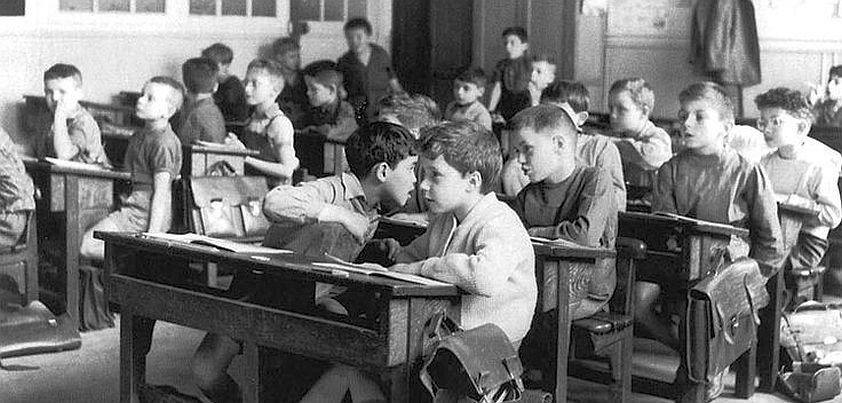 This story by Alain Robbe-Grillet is an example of the Nouveau Roman literary trend of the 1950s. Rather than following a traditional short story structure, The Replacement inter-weaves three seemingly unrelated plot lines involving a frustrated teacher and his bored students, a story they are reading in class, and a schoolboy outside interacting strangely with a tree. In presenting the sequence of events objectively with no authorial interpretation, readers are left to draw their own conclusions as to the story’s meaning and message. Themes could include the attainment of knowledge, the reading process, perseverance, classroom learning vs. curiosity and self-discovery. More…
This story by Alain Robbe-Grillet is an example of the Nouveau Roman literary trend of the 1950s. Rather than following a traditional short story structure, The Replacement inter-weaves three seemingly unrelated plot lines involving a frustrated teacher and his bored students, a story they are reading in class, and a schoolboy outside interacting strangely with a tree. In presenting the sequence of events objectively with no authorial interpretation, readers are left to draw their own conclusions as to the story’s meaning and message. Themes could include the attainment of knowledge, the reading process, perseverance, classroom learning vs. curiosity and self-discovery. More…
The First Seven Years
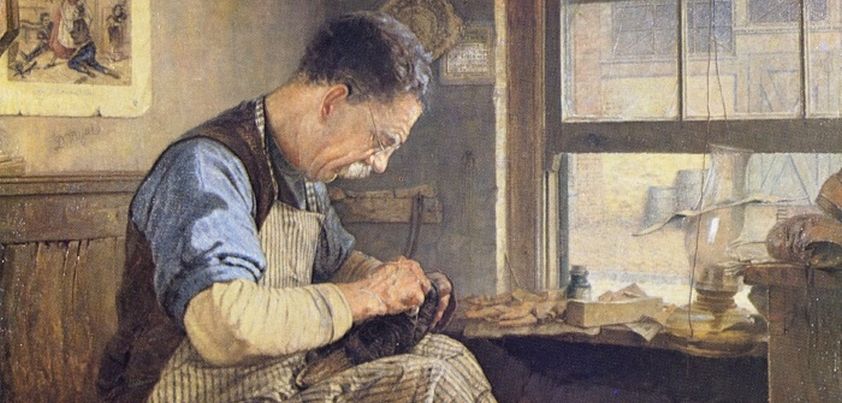 The major theme of this story from Bernard Malamud, with its allusion to the biblical tale of Jacob and Rebecca, is materialism vs. spiritualism. An aging, ailing shoemaker is excited to identify a potential suitor with good financial prospects for his nineteen-year-old daughter. His dreams are shattered when the girl, an avid reader of the classics, rejects the man as being a materialist with “no soul”. He later experiences an epiphany upon learning that she already shares a romantic interest… with his equally sensitive but poorly educated, much older workshop assistant. Other themes: insensitivity, independence, self-learning, worldliness vs. love. More…
The major theme of this story from Bernard Malamud, with its allusion to the biblical tale of Jacob and Rebecca, is materialism vs. spiritualism. An aging, ailing shoemaker is excited to identify a potential suitor with good financial prospects for his nineteen-year-old daughter. His dreams are shattered when the girl, an avid reader of the classics, rejects the man as being a materialist with “no soul”. He later experiences an epiphany upon learning that she already shares a romantic interest… with his equally sensitive but poorly educated, much older workshop assistant. Other themes: insensitivity, independence, self-learning, worldliness vs. love. More…
The Shadow in the Rose Garden
 This story by D. H. Lawrence is about a couple in a loveless marriage. Upon learning that her ex-lover had died, the woman married “below her station”. She convinces her husband to holiday in the village where she met the lover. While visiting a rose garden, she finds him still alive. However, he has suffered brain damage and doesn’t remember her. During an argument, the woman tells her husband about the relationship. His responses range from disbelief to jealousy, anger, rage and finally, grudging acceptance. The big question: What drove the ex-lover to “chuck” the woman and go away? More…
This story by D. H. Lawrence is about a couple in a loveless marriage. Upon learning that her ex-lover had died, the woman married “below her station”. She convinces her husband to holiday in the village where she met the lover. While visiting a rose garden, she finds him still alive. However, he has suffered brain damage and doesn’t remember her. During an argument, the woman tells her husband about the relationship. His responses range from disbelief to jealousy, anger, rage and finally, grudging acceptance. The big question: What drove the ex-lover to “chuck” the woman and go away? More…
Shopping
 This story is about motherly love taken too far. Joyce Carol Oates uses a trip to the mall to explore the relationship between a lonely, divorced mother and her 17-year-old daughter. At one point, the mother wants to ask her daughter: Why are you unhappy? Why do you hate me? Later, the mother stares at her with hatred. The girl is blossoming into independent womanhood. She has been the sole focus of her mother’s life, and the mother is having trouble “letting go”. My advice to the mum: find new interests, buy a cuddly dog, and hope for grandchildren. More…
This story is about motherly love taken too far. Joyce Carol Oates uses a trip to the mall to explore the relationship between a lonely, divorced mother and her 17-year-old daughter. At one point, the mother wants to ask her daughter: Why are you unhappy? Why do you hate me? Later, the mother stares at her with hatred. The girl is blossoming into independent womanhood. She has been the sole focus of her mother’s life, and the mother is having trouble “letting go”. My advice to the mum: find new interests, buy a cuddly dog, and hope for grandchildren. More…
Dusky Ruth
 In addition to writing fantasy and horror stories, A. E. Coppard had a wonderful talent for describing nature and human nature through his tales of life and love in the English countryside. In this story, a hiker exploring the Cotswolds stops for the night at a village inn. The only lodger, he shares passionate embraces with a dusky serving girl in a downstairs sitting room. Later that night, she invites him to her bedroom where, as she lays naked beside him, he proves to be a perfect English gentleman. Themes: the beauty of nature, isolation, loneliness, desire, restraint. More…
In addition to writing fantasy and horror stories, A. E. Coppard had a wonderful talent for describing nature and human nature through his tales of life and love in the English countryside. In this story, a hiker exploring the Cotswolds stops for the night at a village inn. The only lodger, he shares passionate embraces with a dusky serving girl in a downstairs sitting room. Later that night, she invites him to her bedroom where, as she lays naked beside him, he proves to be a perfect English gentleman. Themes: the beauty of nature, isolation, loneliness, desire, restraint. More…
A Day Goes By
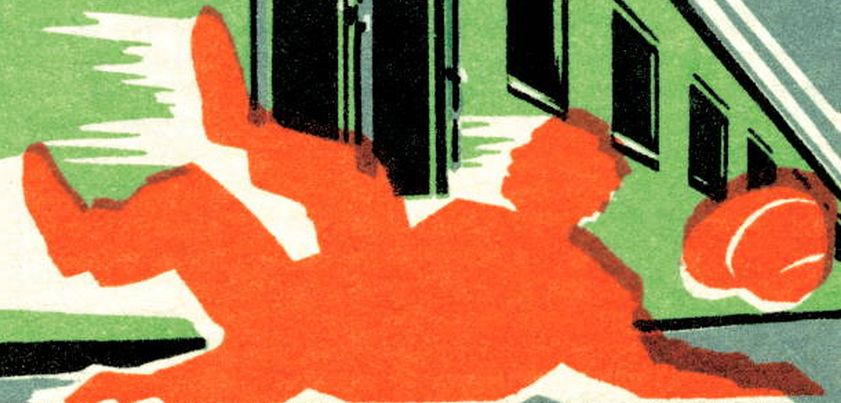 First time readers of this narrative from Luigi Pirandello may find it confusing until the last few paragraphs. The story is an allegory of life, contracted into a single day. The day begins as the disoriented protagonist is unceremoniously cast out of a train carriage into the dawn, and ends with him lying on his deathbed surrounded by his children and grandchildren. Themes: alienation (not knowing oneself, lack of self-confidence, exclusion); identity (what makes us who we are – clothes, occupation, recognition, money, possessions, family); and time (the speed at which life appears to have passed as we age). More…
First time readers of this narrative from Luigi Pirandello may find it confusing until the last few paragraphs. The story is an allegory of life, contracted into a single day. The day begins as the disoriented protagonist is unceremoniously cast out of a train carriage into the dawn, and ends with him lying on his deathbed surrounded by his children and grandchildren. Themes: alienation (not knowing oneself, lack of self-confidence, exclusion); identity (what makes us who we are – clothes, occupation, recognition, money, possessions, family); and time (the speed at which life appears to have passed as we age). More…
The Salt Inspector
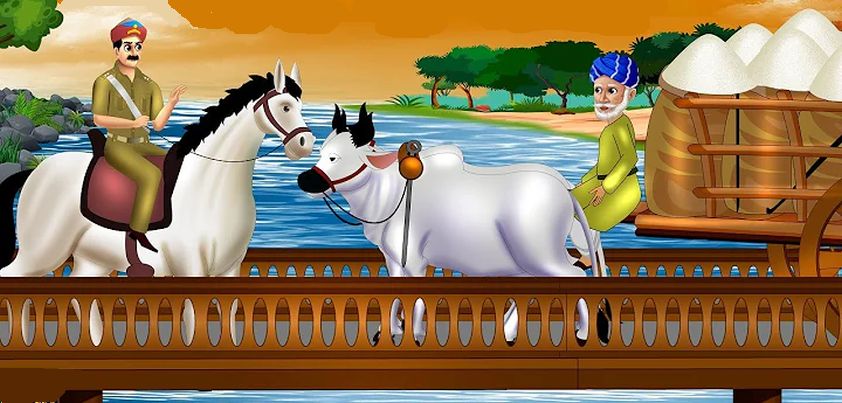 This parable by Premchand about an incorruptible Indian tax inspector ends with an interesting moral dilemma. The idealistic young man refuses a huge bribe and arrests a wealthy zamindar (land baron) for smuggling salt. Because of his “connections”, the zamindar walks free and the inspector is suspended for being over-zealous. Shortly afterwards, the clever zamindar offers the young man a highly-paid job overseeing his properties. He seems happy to cheat the government, but needs someone honest to stop people cheating him. The young man’s dilemma: should he work for such a person? Themes: individual and systemic corruption, integrity, moral compromise. More…
This parable by Premchand about an incorruptible Indian tax inspector ends with an interesting moral dilemma. The idealistic young man refuses a huge bribe and arrests a wealthy zamindar (land baron) for smuggling salt. Because of his “connections”, the zamindar walks free and the inspector is suspended for being over-zealous. Shortly afterwards, the clever zamindar offers the young man a highly-paid job overseeing his properties. He seems happy to cheat the government, but needs someone honest to stop people cheating him. The young man’s dilemma: should he work for such a person? Themes: individual and systemic corruption, integrity, moral compromise. More…
The Bride Comes to Yellow Sky
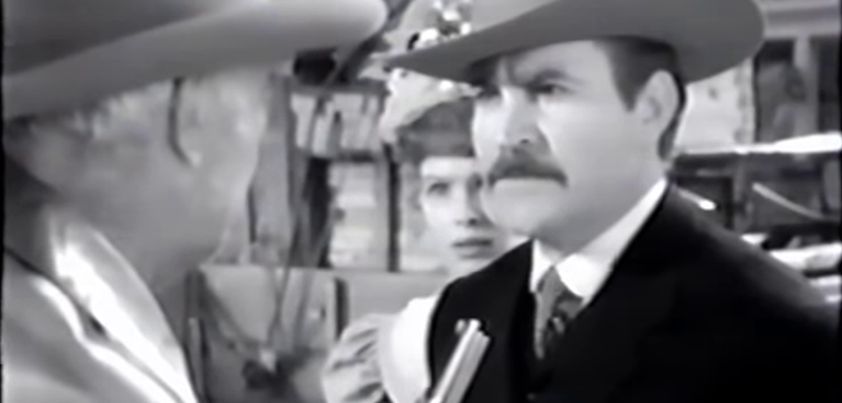 The major theme of this story from Stephen Crane is the taming of America’s ‘Wild West’. The instrument of change is the railroad, which brings ‘Eastern’ ways to previously isolated communities like Yellow Sky. The town’s Marshall, who returns from a city visit with a new wife, symbolizes the transition. As the couple approach their new home, where things will certainly be different for the Marshall, they are confronted by the town drunk spoiling for a fight. When the ‘showdown’ doesn’t go as the drunkard expects, he realizes the old days are gone forever. Other themes: community, marriage, fear, violence. More…
The major theme of this story from Stephen Crane is the taming of America’s ‘Wild West’. The instrument of change is the railroad, which brings ‘Eastern’ ways to previously isolated communities like Yellow Sky. The town’s Marshall, who returns from a city visit with a new wife, symbolizes the transition. As the couple approach their new home, where things will certainly be different for the Marshall, they are confronted by the town drunk spoiling for a fight. When the ‘showdown’ doesn’t go as the drunkard expects, he realizes the old days are gone forever. Other themes: community, marriage, fear, violence. More…
The Wall
 In this story by Jean-Paul Sartre, a foreign volunteer in the fight against Franco’s Nationalists during the Spanish Civil War is arrested. He and two other men are put in a cell where they learn they will be shot the following morning. Most of story is about how each deals with the prospect of death. After the other two are led away, the narrator is given a choice: to follow them or give up the location of a Republican leader. Themes include the brutality of war, death, existentialism (free will to determine the meaning and purpose of our life). More…
In this story by Jean-Paul Sartre, a foreign volunteer in the fight against Franco’s Nationalists during the Spanish Civil War is arrested. He and two other men are put in a cell where they learn they will be shot the following morning. Most of story is about how each deals with the prospect of death. After the other two are led away, the narrator is given a choice: to follow them or give up the location of a Republican leader. Themes include the brutality of war, death, existentialism (free will to determine the meaning and purpose of our life). More…
The Last Question
 The best way to introduce this story by Isaac Asimov is through his own words: This is by far my favorite story of all those I have written. After all, I undertook to tell several trillion years of human history in the space of a short story…. I also undertook another task, but I won’t tell you what that was lest I spoil the story for you. Although there is very little character development or action in the story, the ending is so powerful that almost everyone who reads it remembers it. More…
The best way to introduce this story by Isaac Asimov is through his own words: This is by far my favorite story of all those I have written. After all, I undertook to tell several trillion years of human history in the space of a short story…. I also undertook another task, but I won’t tell you what that was lest I spoil the story for you. Although there is very little character development or action in the story, the ending is so powerful that almost everyone who reads it remembers it. More…
My Life with the Wave
 In this surrealist prose poem by Octavio Paz, a man at a beach is seduced by a sensuous ocean wave. The wave insists on following him home, where they begin a passionate love affair. The wave is subject to sudden mood swings and, to make sure she is not lonely, he buys a colony of fish to swim in her waters. The attention she and the fish give each other leads to jealousy and hatred on his part, and an icy end for the hapless wave. Themes include freedom and oppression, love and passion, jealousy, fear and hatred. More…
In this surrealist prose poem by Octavio Paz, a man at a beach is seduced by a sensuous ocean wave. The wave insists on following him home, where they begin a passionate love affair. The wave is subject to sudden mood swings and, to make sure she is not lonely, he buys a colony of fish to swim in her waters. The attention she and the fish give each other leads to jealousy and hatred on his part, and an icy end for the hapless wave. Themes include freedom and oppression, love and passion, jealousy, fear and hatred. More…
The Stout Gentleman
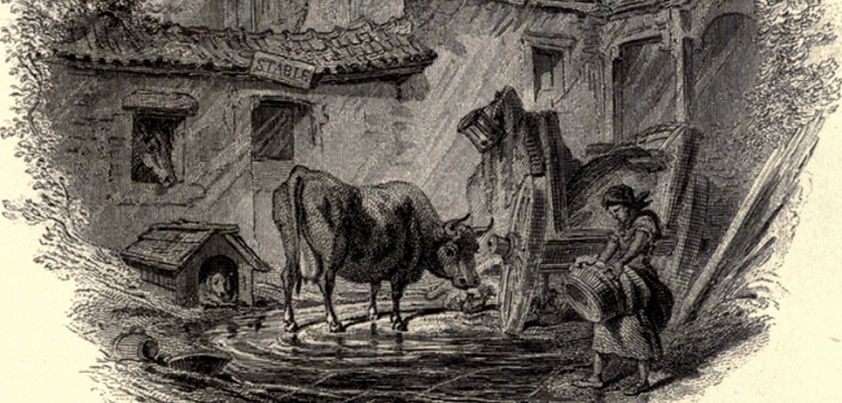 The major theme of this humorous story by Washington Irving is the extent to which we rely on appearance to judge others. A traveller staying at an inn is forced to remain indoors on a miserable, rainy Sunday. With nothing to do and no one to talk to, he passes the time by speculating as to the profession and social status of the only other guest, a demanding, seemingly sophisticated man who remains in his room all day. We learn little more about the other man, who the staff refer to only as the stout gentleman. Other themes: curiosity, obsession, identity. More…
The major theme of this humorous story by Washington Irving is the extent to which we rely on appearance to judge others. A traveller staying at an inn is forced to remain indoors on a miserable, rainy Sunday. With nothing to do and no one to talk to, he passes the time by speculating as to the profession and social status of the only other guest, a demanding, seemingly sophisticated man who remains in his room all day. We learn little more about the other man, who the staff refer to only as the stout gentleman. Other themes: curiosity, obsession, identity. More…
Shiloh
 In the same way that Shiloh Military Park is the site of a major turning point in the American Civil War, the couple in this story by Bobby Ann Mason face several turning points of their own. The first, always lingering in the background and never spoken of, is the death of their infant son. Later comes an accident that forces the truck-driver husband to give up his job, and an identity crisis that results in his wife seeking a new beginning in life. Themes: loss, guilt, avoidance, individual and community change, marriage, gender roles, self-discovery/fulfillment, independence. More…
In the same way that Shiloh Military Park is the site of a major turning point in the American Civil War, the couple in this story by Bobby Ann Mason face several turning points of their own. The first, always lingering in the background and never spoken of, is the death of their infant son. Later comes an accident that forces the truck-driver husband to give up his job, and an identity crisis that results in his wife seeking a new beginning in life. Themes: loss, guilt, avoidance, individual and community change, marriage, gender roles, self-discovery/fulfillment, independence. More…
The Boogeyman
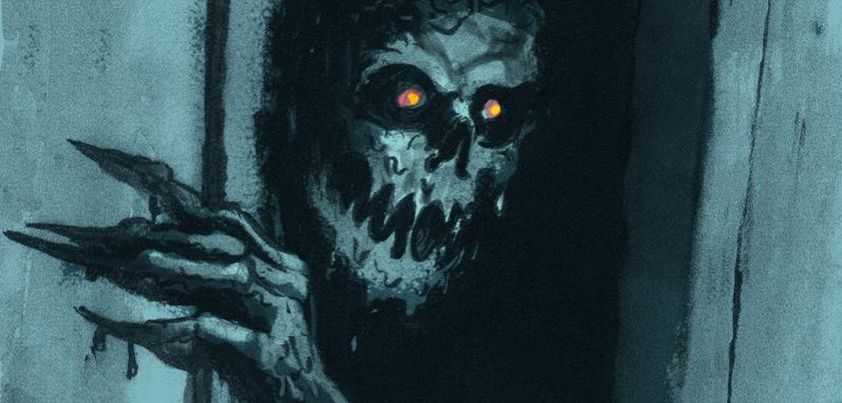 Although not one of Stephen King‘s best-known short stories, The Boogeyman explores one of the greatest fears of many young children as they go to bed: the fact that some sort of evil creature may be hiding under their bed, behind the curtains, or in their closet. In the story, a man with serious mental problems blames himself for the death of his three children. He thinks a monster from his childhood killed them, and that it is now coming after him. At the end of this story, readers are left to wonder who or what this boogeyman really is. More…
Although not one of Stephen King‘s best-known short stories, The Boogeyman explores one of the greatest fears of many young children as they go to bed: the fact that some sort of evil creature may be hiding under their bed, behind the curtains, or in their closet. In the story, a man with serious mental problems blames himself for the death of his three children. He thinks a monster from his childhood killed them, and that it is now coming after him. At the end of this story, readers are left to wonder who or what this boogeyman really is. More…
Railroad Standard Time
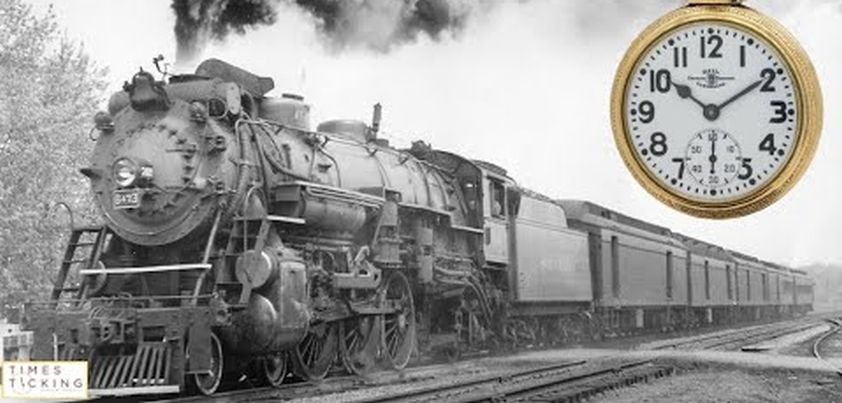 Major themes of this semi-autobiographical story by Frank Chin are time (symbolized by an inherited pocket watch that keeps Railroad Standard Time), the clash between traditional Chinese and ‘modern’ American culture, and the need to move away from long-held stereotypes of Chinese-American men and women. Ironically for a story that focuses on time, the plot does not proceed linearly. As the narrator drives to and from his mother’s funeral, the story moves from memories of the past to the present and then back again, with the watch providing a connection between them. Other themes: nostalgia, family, cultural heritage, identity, masculinity. More…
Major themes of this semi-autobiographical story by Frank Chin are time (symbolized by an inherited pocket watch that keeps Railroad Standard Time), the clash between traditional Chinese and ‘modern’ American culture, and the need to move away from long-held stereotypes of Chinese-American men and women. Ironically for a story that focuses on time, the plot does not proceed linearly. As the narrator drives to and from his mother’s funeral, the story moves from memories of the past to the present and then back again, with the watch providing a connection between them. Other themes: nostalgia, family, cultural heritage, identity, masculinity. More…
This Blessed House
 The major theme of this Jhumpa Lahiri story is the personality clashes that can arise in hasty or arranged marriages. Sanjeev is a conservative, up-and-coming corporate engineer. “Twinkle”, his free-spirited, scatty wife is completing her master’s thesis in poetry. They have known each other for only four months, and both are used to getting their own way. A battle of wills arises over the fate of several Christian items left by the former occupants of their new house. The key questions: Who will win, and will the marriage survive? Other themes: love, cultural adjustment (male dominance vs. shared decision-making), understanding/tolerance. More…
The major theme of this Jhumpa Lahiri story is the personality clashes that can arise in hasty or arranged marriages. Sanjeev is a conservative, up-and-coming corporate engineer. “Twinkle”, his free-spirited, scatty wife is completing her master’s thesis in poetry. They have known each other for only four months, and both are used to getting their own way. A battle of wills arises over the fate of several Christian items left by the former occupants of their new house. The key questions: Who will win, and will the marriage survive? Other themes: love, cultural adjustment (male dominance vs. shared decision-making), understanding/tolerance. More…
The Whimper of Whipped Dogs
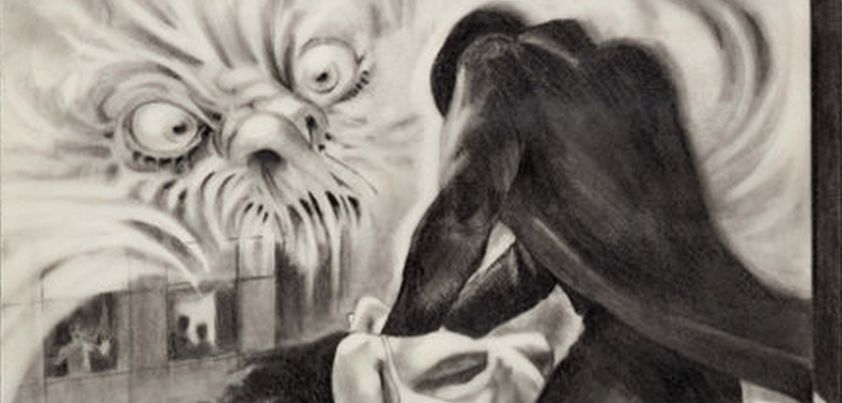 This horror story from Harlan Ellison uses magical realism to explain a crime: the 1964 murder of Kitty Genovese. Newspapers at the time (incorrectly) reported that 38 people, none of whom did anything to help, witnessed her stabbing. Here, a witness to a particularly brutal murder senses an evil presence. She later learns that it was a form of black mass, and joins the demonic cult as a means of survival. Themes include negative aspects of city life (competitive pressure, lack of connection, loneliness), behavioral effects of city life (depression, insensitivity, anger, rudeness, aggression, violence), supernatural (demonic) forces, and cultism. More…
This horror story from Harlan Ellison uses magical realism to explain a crime: the 1964 murder of Kitty Genovese. Newspapers at the time (incorrectly) reported that 38 people, none of whom did anything to help, witnessed her stabbing. Here, a witness to a particularly brutal murder senses an evil presence. She later learns that it was a form of black mass, and joins the demonic cult as a means of survival. Themes include negative aspects of city life (competitive pressure, lack of connection, loneliness), behavioral effects of city life (depression, insensitivity, anger, rudeness, aggression, violence), supernatural (demonic) forces, and cultism. More…
Six Feet of the Country
 This early apartheid-era story by Nadine Gordimer highlights the white South African bureaucracy’s callousness and cultural insensitivity towards other races. While city-dwelling whites live in fear, the unnamed protagonist and his wife peacefully co-exist with their black farm workers on a small property just out of town. When the visiting brother of one of their workers dies, the authorities take the body away for autopsy. After paying £20 to have it returned for burial, they find a different body in the coffin. Major themes: racism and inequality (even in death!), change. More…
This early apartheid-era story by Nadine Gordimer highlights the white South African bureaucracy’s callousness and cultural insensitivity towards other races. While city-dwelling whites live in fear, the unnamed protagonist and his wife peacefully co-exist with their black farm workers on a small property just out of town. When the visiting brother of one of their workers dies, the authorities take the body away for autopsy. After paying £20 to have it returned for burial, they find a different body in the coffin. Major themes: racism and inequality (even in death!), change. More…
The Other
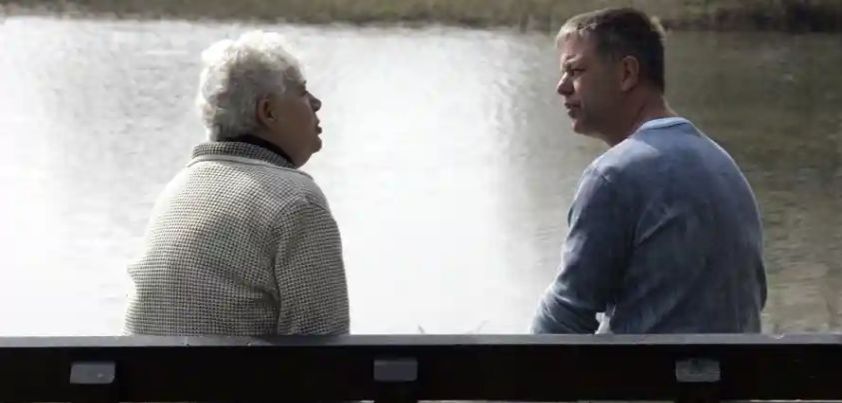 This story by Jorge Borges begins with an aging teacher sitting on a riverside bench watching the world go by. A younger man sits beside him. As they talk, the teacher realizes that the younger man is himself at an earlier age. An ‘impossible’ date on an American banknote convinces the skeptical young man that this is true. The teacher later comes up with an explanation for what happened. He concludes that while the meeting was real and he definitely took part in it, the younger man wasn’t really there. Where was he? Read the story to find out! More…
This story by Jorge Borges begins with an aging teacher sitting on a riverside bench watching the world go by. A younger man sits beside him. As they talk, the teacher realizes that the younger man is himself at an earlier age. An ‘impossible’ date on an American banknote convinces the skeptical young man that this is true. The teacher later comes up with an explanation for what happened. He concludes that while the meeting was real and he definitely took part in it, the younger man wasn’t really there. Where was he? Read the story to find out! More…
All You Zombies
 Despite the title, this fascinating story from science fiction writer Robert Heinlein has nothing to do with zombies of the “walking dead” kind. Rather, it is a cleverly constructed brainteaser that explores some potential problems and paradoxes of time-travel. We can’t say more without spoiling the story, but can tell you that first time readers usually come away with their heads spinning from trying to work out “who is who” and “who did what to whom”. If you are similarly confused, Wikipedia has an excellent summary of the relationships and sequence of events here. Themes: time-travel, intersexuality, isolation. More…
Despite the title, this fascinating story from science fiction writer Robert Heinlein has nothing to do with zombies of the “walking dead” kind. Rather, it is a cleverly constructed brainteaser that explores some potential problems and paradoxes of time-travel. We can’t say more without spoiling the story, but can tell you that first time readers usually come away with their heads spinning from trying to work out “who is who” and “who did what to whom”. If you are similarly confused, Wikipedia has an excellent summary of the relationships and sequence of events here. Themes: time-travel, intersexuality, isolation. More…
The Egg
 This dark comedy from Sherwood Anderson follows a contented farmhand and his ambitious wife who, after starting a family, decide to pursue the American Dream. In their first venture, a chicken farm, everything that can go wrong does go wrong. More troubles follow when they move closer to town and open a diner. The stressed husband tries to help business by being someone he is not (an entertainer), and ends up “with egg on his face”. The egg, which usually symbolizes the cycle of life, is for them a symbol of the cycle of poverty. Other themes: death, isolation, hope. More…
This dark comedy from Sherwood Anderson follows a contented farmhand and his ambitious wife who, after starting a family, decide to pursue the American Dream. In their first venture, a chicken farm, everything that can go wrong does go wrong. More troubles follow when they move closer to town and open a diner. The stressed husband tries to help business by being someone he is not (an entertainer), and ends up “with egg on his face”. The egg, which usually symbolizes the cycle of life, is for them a symbol of the cycle of poverty. Other themes: death, isolation, hope. More…
Kabuliwallah
 If you are a parent, this touching story by Rabindranath Tagore may well bring a tear to your eye. One of Tagore’s most popular stories, it describes an unlikely friendship between the precocious five-year-old daughter of a middle-class Bengali writer and an Afghani fruit-seller (Kabuliwallah). When the Kabuliwallah visits on the girl’s wedding day after an eight-year stint in prison, she barely acknowledges him. On learning why the fruit-seller had spent so much time with his daughter, the writer and Kabuliwallah form an instant bond. Themes: childhood innocence, friendship, growing up, change, class, prejudice, fatherly love. More…
If you are a parent, this touching story by Rabindranath Tagore may well bring a tear to your eye. One of Tagore’s most popular stories, it describes an unlikely friendship between the precocious five-year-old daughter of a middle-class Bengali writer and an Afghani fruit-seller (Kabuliwallah). When the Kabuliwallah visits on the girl’s wedding day after an eight-year stint in prison, she barely acknowledges him. On learning why the fruit-seller had spent so much time with his daughter, the writer and Kabuliwallah form an instant bond. Themes: childhood innocence, friendship, growing up, change, class, prejudice, fatherly love. More…
The Golden Kite, the Silver Wind
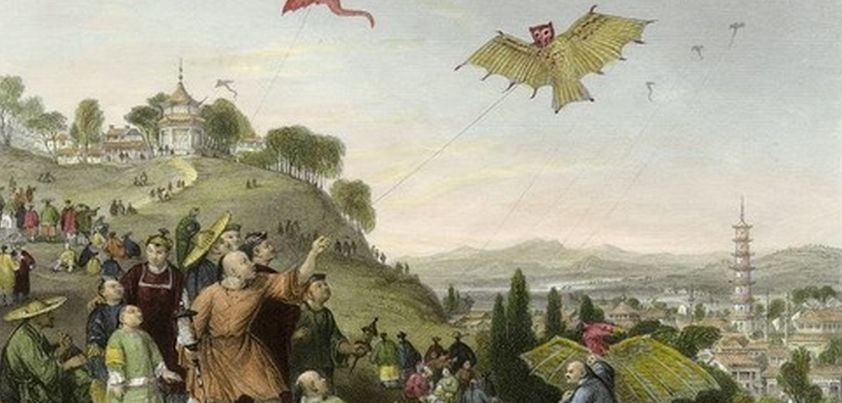 This story by Ray Bradbury is thought to be an allegory of the nuclear arms race. This took place from 1947 to 1991 during the “Cold War” between the United States and Russia. The “Mandarins” who began the Cold War were Harry S. Truman and Joseph Stalin. One wonders if the first Mandarin’s daughter alludes to Truman’s wife Bess. Truman once said he never made an important decision without first seeking her thoughts. Moreover, Bess edited many of his speeches. She is known to have made changes to his famous speech outlining the Truman Doctrine, which started it all. More…
This story by Ray Bradbury is thought to be an allegory of the nuclear arms race. This took place from 1947 to 1991 during the “Cold War” between the United States and Russia. The “Mandarins” who began the Cold War were Harry S. Truman and Joseph Stalin. One wonders if the first Mandarin’s daughter alludes to Truman’s wife Bess. Truman once said he never made an important decision without first seeking her thoughts. Moreover, Bess edited many of his speeches. She is known to have made changes to his famous speech outlining the Truman Doctrine, which started it all. More…
Poison
 Roald Dahl is best known for short stories that make their point using dark humor and have a surprise ending. This story exhibits neither of these features. The central theme is the racism that existed under British colonial rule. Dahl gets the message across through this allegory about the way a British businessman acted badly towards an Indian doctor who answered his call for help in the middle of the night and may well have saved his life. In the story we learn that there are several kinds of poison. Unlike the deadly krait, some of them kill quite slowly. More…
Roald Dahl is best known for short stories that make their point using dark humor and have a surprise ending. This story exhibits neither of these features. The central theme is the racism that existed under British colonial rule. Dahl gets the message across through this allegory about the way a British businessman acted badly towards an Indian doctor who answered his call for help in the middle of the night and may well have saved his life. In the story we learn that there are several kinds of poison. Unlike the deadly krait, some of them kill quite slowly. More…
Only the Dead Know Brooklyn
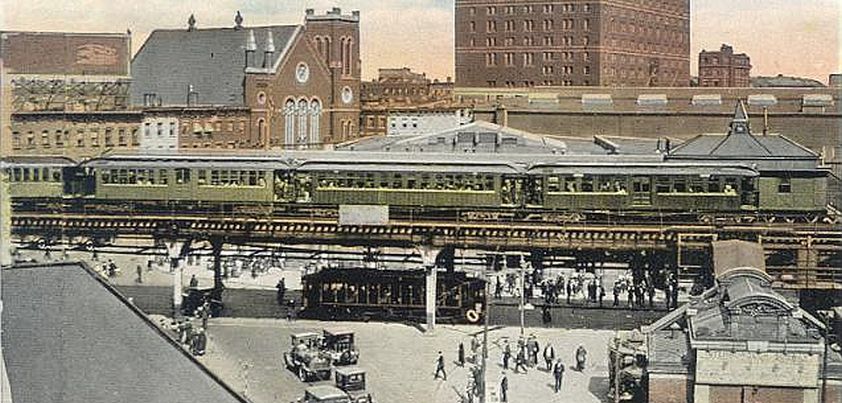 New arrivals in a city often learn things and visit places that long-term residents don’t know about. In this humorous story from Thomas Wolfe, a stranger demonstrates this to the annoyance of the well-meaning but increasingly agitated narrator. The highly opinionated men differ over the narrator’s warnings about the dangers of the “nice sounding” Brooklyn neighborhoods the stranger has chosen for his nightly walks. To make matters worse, the stranger insists that all one needs to feel safe and get to “know” the city is a good map. Themes: connection, pride, perception, fear, curiosity. More…
New arrivals in a city often learn things and visit places that long-term residents don’t know about. In this humorous story from Thomas Wolfe, a stranger demonstrates this to the annoyance of the well-meaning but increasingly agitated narrator. The highly opinionated men differ over the narrator’s warnings about the dangers of the “nice sounding” Brooklyn neighborhoods the stranger has chosen for his nightly walks. To make matters worse, the stranger insists that all one needs to feel safe and get to “know” the city is a good map. Themes: connection, pride, perception, fear, curiosity. More…
Janus
 Ann Beattie’s Janus is about a realtor (Andrea) who strategically places her most prized possession (a decorative, “lucky” bowl) in houses she is showing in the belief it will help them sell. The titular Janus is the two-faced Roman god of duality; the lover who gave Andrea the bowl calls her “two-faced” for not leaving her husband. The central theme, symbolized by the bowl, is the choices modern women must make, as between career and family, financial security and struggle, husband and lover, etc. Andrea’s choices bring career and financial success, but not happiness. Other themes: aesthetic appreciation, deception, emptiness. More…
Ann Beattie’s Janus is about a realtor (Andrea) who strategically places her most prized possession (a decorative, “lucky” bowl) in houses she is showing in the belief it will help them sell. The titular Janus is the two-faced Roman god of duality; the lover who gave Andrea the bowl calls her “two-faced” for not leaving her husband. The central theme, symbolized by the bowl, is the choices modern women must make, as between career and family, financial security and struggle, husband and lover, etc. Andrea’s choices bring career and financial success, but not happiness. Other themes: aesthetic appreciation, deception, emptiness. More…